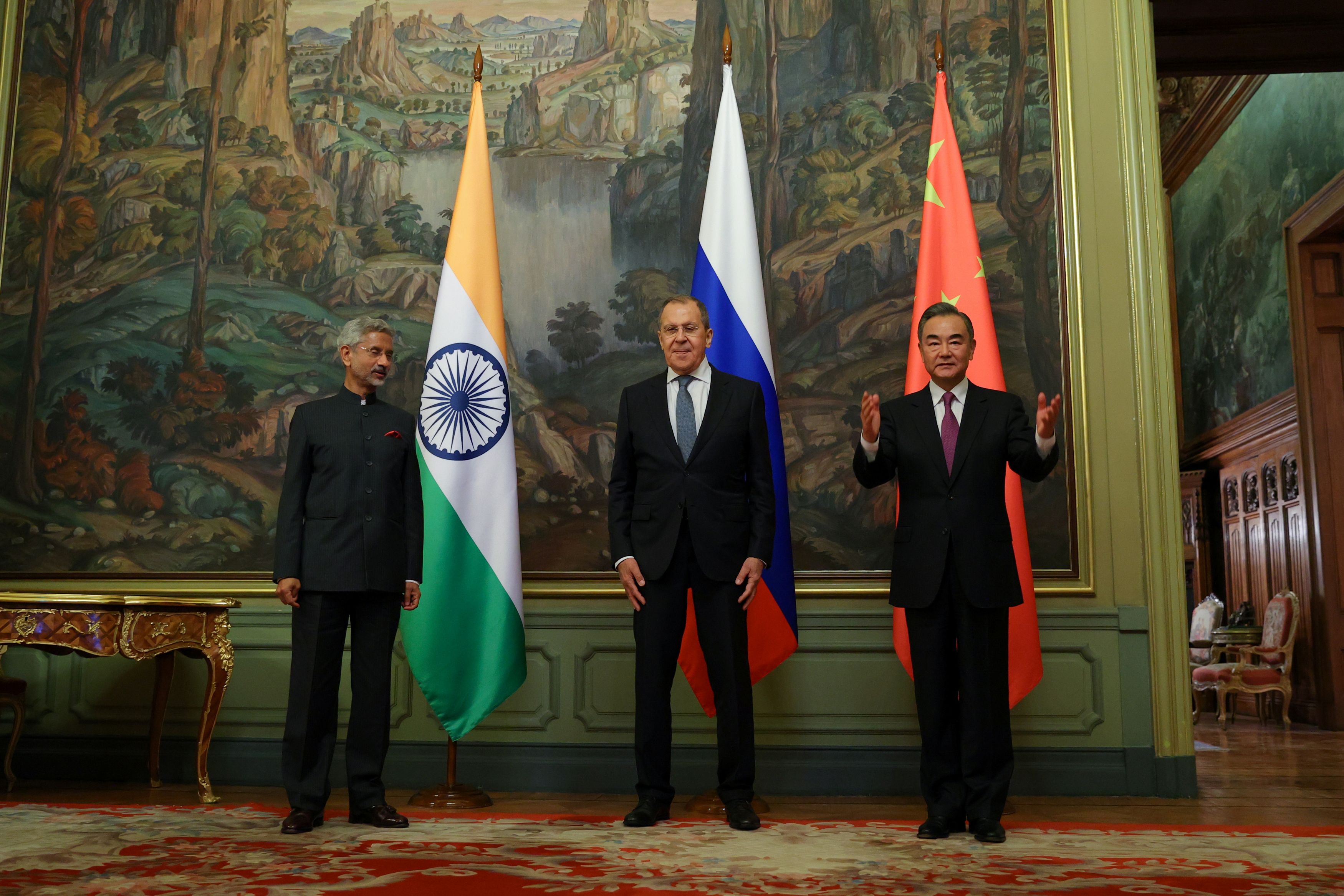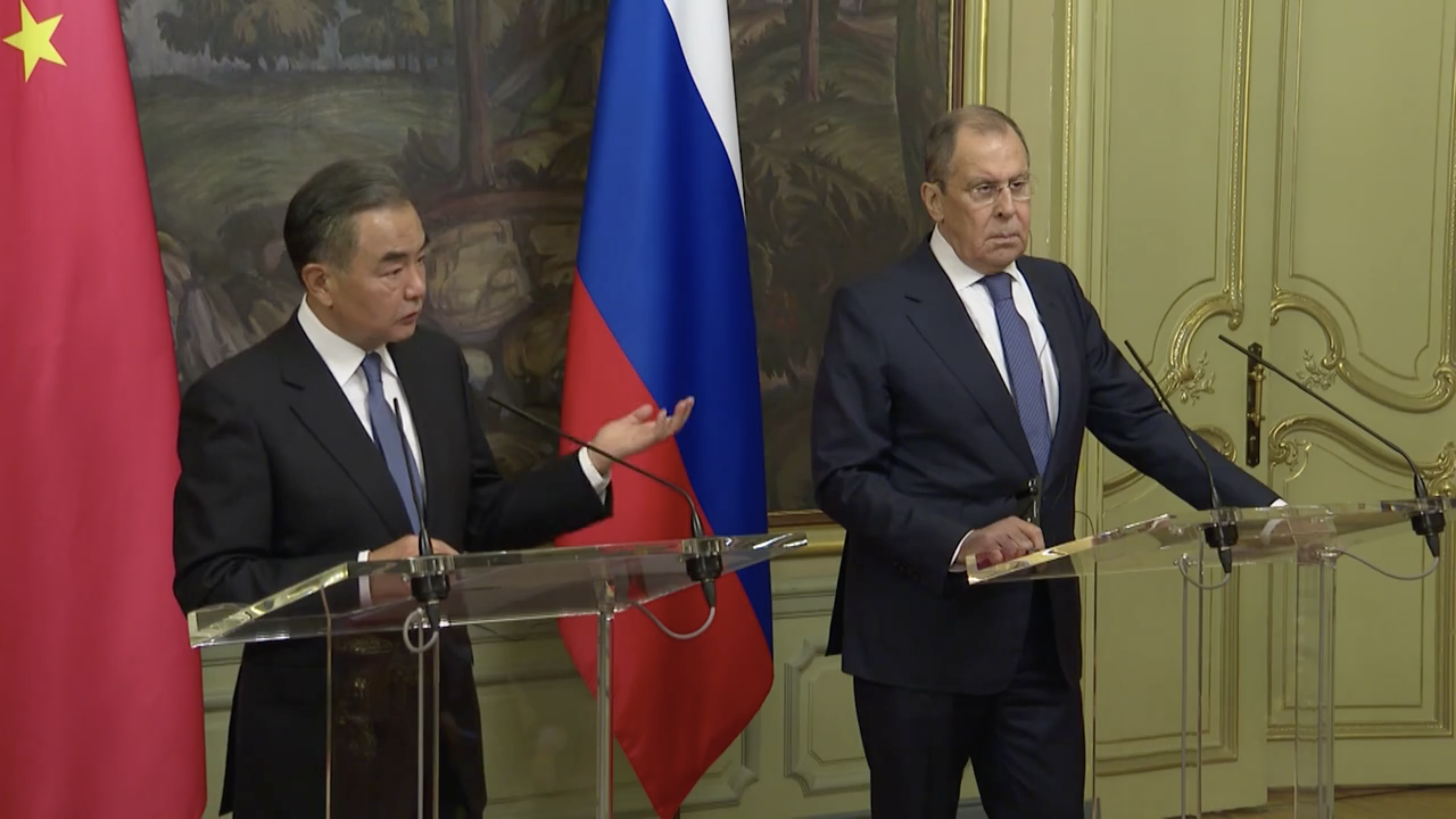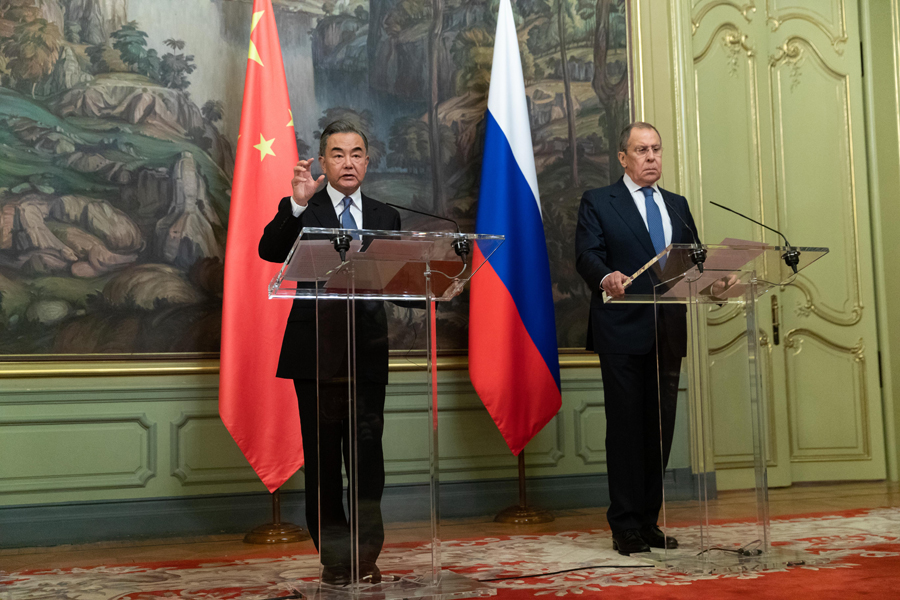Chinese State Councilor and Foreign Minister Wang Yi urged India to implement the five-point consensus on deescalating border tension at a joint press conference with Russian Foreign Minister Sergei Lavrov in Moscow on Friday.
Wang met with Indian External Affairs Minister Subrahmanyam Jaishankar on the sidelines of a foreign ministers' meeting of the Shanghai Cooperation Organization (SCO) in Moscow on Thursday evening. The two sides reached a five-point consensus to maintain peace at border areas and avoid any action that could escalate matters.
On Friday's briefing, Wang reiterated the top priority for India is to ensure its soldiers won't break their promise once again, referring to the incident of which Indian soldiers opened fire in the border area.
He also urged India to withdraw all personnel and equipment that crossed the line immediately to resume peace and stability in the region.
The move would create conditions for settling border issues, Wang said, adding the two sides could continue negotiations based on that.
Read more: Wang Yi: China, Russia and India share extensive, profound common interests and ideas

Chinese State Councilor and Foreign Minister Wang Yi (R), Russian Foreign Minister Sergei Lavrov (C) and Indian External Affairs Minister Subrahmanyam Jaishankar pose for a picture during a meeting in Moscow, Russia, September 10, 2020. /Reuters
Chinese State Councilor and Foreign Minister Wang Yi (R), Russian Foreign Minister Sergei Lavrov (C) and Indian External Affairs Minister Subrahmanyam Jaishankar pose for a picture during a meeting in Moscow, Russia, September 10, 2020. /Reuters
The press conference was held after the two foreign ministers' meeting, during which Wang spoke highly of China's relations with Russia and called for strengthening comprehensive strategic cooperation between the two sides.
He reiterated the point at the briefing by calling the two countries as major powers that help stabilize the turbulent international situation.
Read more: China, Russia to strengthen comprehensive strategic cooperation
No interference
During the briefing, Wang once again demanded the U.S. not to interfere in China's internal affairs and abide by the norms of international relations.
Non-interference in other countries' internal affairs is a traditional principle for China's diplomacy, Wang said.
The U.S. congress repeatedly drafted so-called bills targeting on China's internal affairs. It is out of their business, the foreign minister said.
01:06

Dual circulation
The Chinese foreign minister noted that China will bring the world more opportunities under the "dual circulation" model which takes the domestic market as the mainstay while letting internal and external markets boost each other.
Official data showed China's consumer spending contributed 57.8 percent to the GDP growth last year, compared to the 35.3 percent ratio in 2008. In 2019, China's GDP per capita exceeded 10,000 U.S. dollars for the first time in history.
Noting the rapid growth, Wang noted that emphasizing the domestic market is a natural choice as the country's huge consumer scale and growing supply capacities entail mass opportunities.
The new model requires China to build a more open economic mechanism. It will inject new impetus and opportunities for national development of other countries in the world, Wang suggested.
Chinese President Xi Jinping called for further opening-up and building an inclusive environment for cooperation with joint efforts at his opening speech of the 2020 China International Fair for Trade in Services (CIFTIS) in Beijing last Friday. Wang said the remarks show China's clear stance on win-win cooperation with other countries.

Chinese State Councilor and Foreign Minister Wang Yi (L) and Russian Foreign Minister Sergei Lavrov. /Chinese Foreign Ministry
Chinese State Councilor and Foreign Minister Wang Yi (L) and Russian Foreign Minister Sergei Lavrov. /Chinese Foreign Ministry
China's pledge on data security
Wang also addressed the Global Initiative on Data Security proposed by China on Tuesday at an international symposium named "Seizing Digital Opportunities for Cooperation and Development." It opposes undermining key infrastructure or data theft by using information technology and forcing firms to store data generated overseas in their home country.
China attaches great importance to data security, Wang said, adding the initiative is welcomed by Russia and the ASEAN countries.
The initiative comes a month after the U.S. said it was purging "untrusted" Chinese apps under a program dubbed "Clean Network."
Noting concerns and comments on China's efforts in protecting data, Wang stated that the aim of the initiative is to show the world not only China's determination on data security, but also its concerns on the concrete actions on safeguarding global data and international security.
We called on all parties to work jointly to intensify pragmatic cooperation, build up mutual trust, and deepen cooperation with one another rather than pursuing unilateralism in the name of national security.